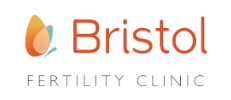I'm Mrs Uma Gordon, consultant gynaecologist and specialist in reproductive medicine and surgery. I'm also the clinical director of the Bristol Fertility Clinic. A lot of patients come for IVF/ICSI treatment and one of the complications we try to avoid at all cause is ovarian hyperstimulation syndrome, otherwise known as OHSS. Now, we adjust the dosage of stimulation, i.e., the development of the egg sacs based on certain parameters, your weight, your ovarian reserve tests based on these things as well as your past response, we adjust your gonadotropin dosage. Gonadotropins are those which allow your egg sacs to develop. However, sometimes patients can still over-respond despite all the precautions we have taken, especially if they've got a hormonal condition called a polycystic ovarian syndrome. And then they are at risk of this particular condition called OHSS. OHSS is where your ovaries enlarge to a considerable size.
You start collecting fluid in your body, in your tummy, and in your lungs. And it is something that can get worse if you become pregnant and can carry on for a few weeks and is something that all fertility clinics are trying to avoid. Thankfully, once a diagnosis of the polycystic ovarian syndrome has been made or we find that you're ovarian reserve tests show high levels of AMH, that means very good egg numbers. Then, we can put you on a lower dosage and we can you on put a regime called an antagonist regime. Sometimes this is known as the short protocol, but really the correct term is antagonist regime.
In that regime, if you do over-respond, we can then rescue you, i.e., we can change the trigger. It is the trigger, which cascades you into this complication of OHSS. So, we can change the trigger, still, undertake a collection, collect the eggs, create embryos and freeze them, and then allow you to have a frozen transfer when the ovaries have settled down and the risks of OHSS are completely removed in a frozen cycle and your success rates will be excellent as well. So, all clinics will be talking to you about this complication and how they're doing efforts to minimize the complication. Thank you.


